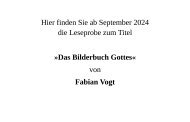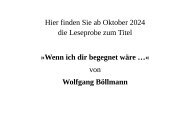Stephen Pickard | Michael Welker | John Witte (Eds.): The Impact of Education (Leseprobe)
This book investigates the impact of education on the formation of character, moral education and the communication of values in late modern pluralistic societies. Scholars from four continents and many different academic fields are involved. While the basic framework for the contributions is informed by Christian traditions, the disciplines cover a significant range, including theology, education, psychology, literature, anthropology, law, and business. This makes for a rich variety of thematic concentrations and perspectives. Readers will quickly sense that the educational foundations and trajectories of any given country are pervasive and have a significant reach into the fabric and shape of the society and its values, making education a barometer of the well-being of a people and their culture. The result is a volume that will inform, stimulate and challenge our understanding of the role of education in contemporary societies.
This book investigates the impact of education on the formation of character, moral education and the communication of values in late modern pluralistic societies. Scholars from four continents and many different academic fields are involved. While the basic framework for the contributions is informed by Christian traditions, the disciplines cover a significant range, including theology, education, psychology, literature, anthropology, law, and business. This makes for a rich variety of thematic concentrations and perspectives. Readers will quickly sense that the educational foundations and trajectories of any given country are pervasive and have a significant reach into the fabric and shape of the society and its values, making education a barometer of the well-being of a people and their culture. The result is a volume that will inform, stimulate and challenge our understanding of the role of education in contemporary societies.
You also want an ePaper? Increase the reach of your titles
YUMPU automatically turns print PDFs into web optimized ePapers that Google loves.
10 Preface to the Series<br />
Already acentury ago, however, scholars in different fields began to flatten out<br />
this hierarchical theory <strong>of</strong> social institutions and to emphasize the foundational<br />
role <strong>of</strong> other social institutions alongside the family, church, and state in shaping<br />
private and public life and character. Sociologistslike Max Weber and Talcott Parsons<br />
emphasized the shaping powers <strong>of</strong> “technical rationality” exemplified especially<br />
in new industry, scientific education, and market economies.Legal scholars<br />
like Otto von Gierkeand F. W. Maitland emphasized the criticalroles <strong>of</strong> nonstate<br />
legal associations (Genossenschaften) inmaintaining ajust social, political, and<br />
legal order historically and today.Catholic subsidiarity theories <strong>of</strong> Popes Leo XIII<br />
and Pius XI emphasized the essentialtask <strong>of</strong> mediating social units between the<br />
individual and the state to cater the full range <strong>of</strong> needs, interests, rights, and duties<br />
<strong>of</strong> individuals. Protestant theories <strong>of</strong> sphere sovereignty, inspired by Abraham<br />
Kuyper, argued that not only churches, states,and families but also the social<br />
spheres <strong>of</strong> art, labor, education, economics, agriculture, recreation, and more<br />
should enjoy alevel <strong>of</strong> independence from others, especially an overreaching<br />
church or state. Various theories <strong>of</strong> social or structural pluralism, civil society,<br />
voluntary associations, the independent sector, multiculturalism, multinormativity,<br />
and other such labels have now come to the fore in the ensuing decades<br />
—both liberal and conservative, religious and secular, and featuring all manner<br />
<strong>of</strong> methods and logics.<br />
Pluralism <strong>of</strong> all sorts is now acommonplace <strong>of</strong> late modern societies. At minimum,<br />
this means amultitude <strong>of</strong> free and equal individuals and amultitude <strong>of</strong><br />
groups and institutions, each with very different political, moral, religious, and<br />
pr<strong>of</strong>essional interests and orientations. It includes the sundry associations, interest<br />
groups, parties, lobbies, and social movements that <strong>of</strong>ten rapidly flourishand<br />
fade around acommon cause, especially when aided by modern technology and<br />
various social media. Some see in this texture <strong>of</strong> plurality an enormous potential<br />
for colorful and creative development and arobust expression <strong>of</strong> human and cultural<br />
freedom. Others see achaotic individualism and radical relativism, which<br />
endangers normative education, moral character formation, and effective cultivation<br />
<strong>of</strong> enduring values or virtues.<br />
Pluralism viewed as vague plurality, however, focuses on only one aspect <strong>of</strong><br />
late modern societies—the equality <strong>of</strong> individuals, and their almost unlimited freedom<br />
to participate peaceablyatany time as arespected voice in the moral reasoning<br />
and civil interactions <strong>of</strong> asociety. But this view does not adequately recognize<br />
that, beneath the shifting cacophony <strong>of</strong> social forms and norms that constitute<br />
modernity, pluralistic societies have heavy normative codes that shape their individual<br />
and collective values and morals, preferences and prejudices.<br />
<strong>The</strong> sources <strong>of</strong> much <strong>of</strong> this normative coding and moral education in late<br />
modern pluralistic societies are the deep and powerful socialsystems that are the<br />
pillars <strong>of</strong> every advanced culture. <strong>The</strong> most powerful and pervasive <strong>of</strong> these are<br />
the social systems <strong>of</strong> law, religion, politics, science/academy, market, media, fam-
















